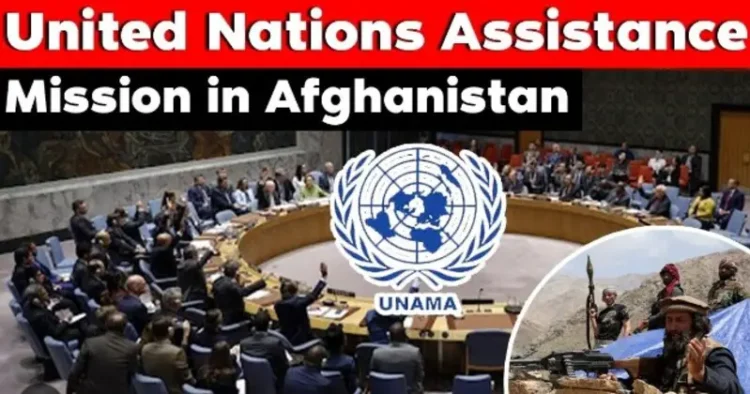In the current context of Afghanistan, women and girls encounter significant obstacles to the realization of their fundamental human rights. The restrictive policies implemented by the Taliban have raised concerns globally, highlighting the urgent need for concerted efforts to safeguard the rights of this vulnerable demographic.
Against this backdrop, UNAMA stands as a steadfast advocate for the rights of women and girls. The mission recognises the critical importance of empowering women and ensuring their full participation in all aspects of Afghan society. UNAMA’s commitment extends to promoting gender equality, advocating for education, and fostering an environment that respects and upholds the rights of women and girls.
World Human Rights Day serves as a poignant reminder of the global commitment to protecting and promoting human rights for all individuals, irrespective of gender or background. UNAMA’s emphasis on women and girls during this occasion underscores the urgency of addressing gender-specific challenges in Afghanistan and striving for a more inclusive and equitable society
The head of UNAMA, Roza Otunbayeva, stated that Afghanistan is a signatory to international human rights treaties and that the preservation of human rights is critical for Afghanistan’s future well-being, reconciliation, and stability.
According to the organisation, despite improvements in security as a result of reduced armed violence, Afghanistan’s human rights situation has remained “dire” since 2021. On the occasion of “World Human Rights Day,” the United Nations Assistance Mission in Afghanistan (UNAMA) urged the Taliban to embrace and promote human rights commitments.
According to the organization’s statement, Taliban government officials have a greater responsibility to play in promoting and protecting human rights for all Afghans, particularly women and girls, Khaama Press reported.
The Deputy Office of UNAMA has accused the Taliban of persistent violations of women’s and girls’ rights, saying that many of them have been barred from daily life and public affairs.
Furthermore, among abuses against women and girls in Afghanistan, UNAMA’s statement emphasised “arbitrary detention, threats, and censorship of women’s rights defenders,” Khaama Press reported. Several human rights organisations have appealed for the protection of human rights in Afghanistan, notably the rights of women and girls, throughout the last two years.
Since seizing control of Afghanistan in August 2021, the Taliban has been the country’s de facto authority. Despite initial public commitments to uphold the rights of women and girls, the Taliban introduced policies of systematic discrimination that violate their rights.
Women and girls across Afghanistan reacted to this crackdown with a wave of protests. In response, the Taliban targeted protesters with harassment and abuse, arbitrary arrest and detention, enforced disappearance, and physical and psychological torture.




















Comments